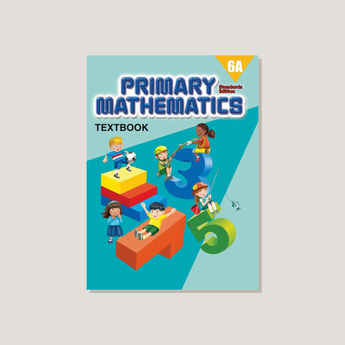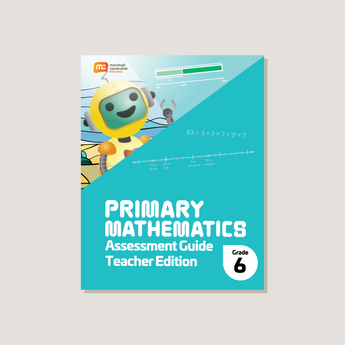The impact of supportive teaching on easing struggles in primary math
Wiki Article
Vital Tricks to Boost Your Understanding of Mathematics Basics
Enhancing one's understanding of mathematics principles needs a calculated strategy. Mastering basic procedures is necessary, as they work as the foundation for extra intricate concepts. Normal practice, combined with the use of visual aids, can greatly enhance comprehension. Breaking troubles right into convenient parts frequently leads to more clear insights. As individuals discover these strategies, they may find unexpected connections that even more improve their mathematical journey (struggles in primary math). What might they discover following?Recognize the Essentials: Building a Strong Foundation

Furthermore, knowledge with portions, decimals, and portions is crucial, as these components typically show up in real-world applications. struggles in primary math. Acknowledging patterns and creating problem-solving abilities additionally enhances mathematical understanding
Involving with aesthetic help, manipulatives, and interactive tools can also assist in a deeper understanding of fundamental ideas. Students profit from damaging down complex troubles into convenient parts, which makes the learning procedure much less frustrating. Eventually, a strong understanding of mathematics principles not just prepares trainees for higher-level mathematics however additionally promotes confidence in their capabilities, allowing them to tackle challenges with better ease.
Practice Consistently: The Key to Proficiency
Routine practice is essential for mastering mathematical concepts. Participating in day-to-day practice permits people to strengthen their understanding while tackling different problem types improves their problem-solving skills. This combination fosters a deeper comprehension of mathematics and constructs self-confidence in using found out skills.
Daily Technique Procedure
Regular method is essential for anyone seeking to master math principles, as it reinforces ideas and boosts problem-solving abilities. Daily practice sessions give a chance for students to involve with product proactively, strengthening their understanding via repetition. Developing a routine aids to produce technique and urges a feeling of responsibility. Short, focused sessions are usually much more efficient than longer, occasional ones, enabling for continual focus and retention. Additionally, tracking progress during these sessions can inspire individuals to push via obstacles. Integrating a range of workouts, while still remaining within the exact same topic, guarantees that students are continually constructing on their understanding. Eventually, day-to-day practice lays the foundation for a much deeper understanding of mathematical principles, cultivating confidence and competence.Differed Trouble Types
Involving with a range of problem kinds is necessary for understanding mathematics fundamentals, as it exposes learners to various circumstances and difficulties. This diversity not only strengthens problem-solving skills yet likewise increases versatility in using mathematical concepts. By practicing a variety of issues, pupils experience unique circumstances that require them to think seriously and creatively. Furthermore, switching between trouble types can improve retention of mathematical principles and boost general comprehension. Regular exposure to diverse obstacles guarantees that students do not become extremely reliant on particular methods, cultivating a much deeper understanding of the subject. Eventually, including varied issues right into technique routines furnishes students with the tools required to take on intricate mathematical problems with confidence.Usage Visual Aids: Making Concepts Concrete
Aesthetic help play an essential role in making abstract mathematical concepts a lot more substantial for learners. They provide concrete depictions of ideas, allowing students to imagine relationships and patterns that could or else stay elusive. Tools such as representations, charts, and graphes help to show mathematical concepts, enabling students to grasp concepts like fractions, geometry, and algebra with greater ease.Manipulatives, such as counters or blocks, can better improve understanding by involving trainees in hands-on knowing. This responsive method permits individuals to experiment and check out mathematical ideas in a physical context. Furthermore, digital resources and interactive software program can produce vibrant visualizations that adjust to a learner's pace, fostering a much deeper comprehension of intricate topics.
Damage Troubles Down: Simplifying Complex Obstacles
Several students run into challenges when encountered with intricate mathematical problems, frequently really feeling bewildered by the intricacies included. To navigate these troubles, damaging issues down into smaller sized, manageable parts verifies to be an important technique (struggles in primary math). By isolating specific parts, trainees can concentrate on resolving each sector systematically, reducing stress and anxiety and improving understandingThis method motivates a detailed technique, allowing students to recognize patterns and connections within the problem. When tackling a multi-step equation, damaging it down into separate operations can clarify the course to the solution. In addition, pupils can use this strategy to word problems by removing vital details and reiterating the issue in less complex terms.
Ultimately, simplifying intricate obstacles with decomposition not just cultivates a much deeper understanding of mathematical principles however also builds confidence, making it possible for students to approach future problems with greater ease and assurance.
Associate Mathematics to Reality: Finding Practical Applications
Recognizing the significance of maths in everyday scenarios can significantly boost a trainee's learning experience. By associating math principles to sensible applications, pupils can create a much deeper understanding and gratitude for the subject. Budgeting calls for basic arithmetic and algebraic abilities to manage financial savings and expenses effectively. When adjusting recipes, food preparation provides chances to explore proportions and ratios. Furthermore, understanding geometry is crucial when establishing the location of a garden or the volume of a container.In the ball of technology, math underpins programs and information evaluation, showing its relevance in the modern-day labor force. Engaging with real-life situations permits pupils to see mathematics as a device for analytical instead of an abstract principle. By making these connections, trainees can foster an extra positive attitude towards mathematics, motivating them to discover and use these abilities in various contexts.
Collaborate With Others: Knowing With Discussion
Although mathematical ideas can commonly appear isolated, teaming up with others with discussion can substantially enhance understanding and retention. Involving with peers enables people to express their thoughts, clarify doubts, and browse around these guys explore various perspectives on intricate subjects. This exchange not just strengthens their very own understanding but likewise exposes them to alternative problem-solving techniques.Seminar can foster an encouraging knowing environment where participants feel comfy asking concerns and sharing understandings. This public technique motivates much deeper cognitive interaction, as people are encouraged to discuss their thinking and protect their approaches. Moreover, reviewing mathematical ideas typically highlights links between principles, making them more relatable and easier to realize.
In addition, cooperation can cause the exploration of new sources or devices that individuals may not have actually taken into consideration. Eventually, discovering via conversation grows a sense of community, changing the research study of math from a solitary venture into a cumulative journey of understanding.
Welcome Mistakes: Transforming Mistakes Into Discovering Opportunities
Errors are typically checked out as troubles in the understanding process, yet they can function as powerful drivers for development and understanding in maths. When learners experience mistakes, they have the opportunity to examine their believed procedures and recognize misconceptions. This representation fosters a much deeper understanding of mathematical principles.Embracing mistakes urges students to adopt a development way of thinking, where difficulties are deemed chances to enhance as opposed to challenges. By studying mistakes, people can determine particular areas needing support, resulting in targeted method and proficiency. Additionally, sharing errors with peers can produce a collective discovering environment where collective analytic embellishments.

Often Asked Inquiries
Exactly How Can I Get Over Math Anxiousness Efficiently?
To conquer math stress and anxiety effectively, people can practice leisure strategies, look for assistance from peers or tutors, break jobs into smaller sized steps, and gradually develop self-confidence pop over to these guys through positive support and constant technique in a low-pressure atmosphere.What Resources Can Help Me Understand Mathematics Better?
Different resources can aid in recognizing math much better, including online tutorials, educational applications, books, study groups, and educational video clips. Engaging with several styles helps cater and strengthen principles to various learning designs efficiently.Are There Certain Applications for Exercising Mathematics Abilities?
Countless apps exist for practicing mathematics skills, such as Khan Academy, Photomath, and Natural born player. These applications offer interactive workouts, descriptions, and individualized learning experiences, helping customers strengthen their understanding and efficiency in various mathematical concepts.Just how Do I Keep Motivated When Researching Mathematics?
To stay encouraged while studying math, one must establish attainable objectives, benefit development, incorporate varied resources like video games or video clips, and keep a positive state of mind, checking out obstacles as web link chances for growth as opposed to barriers.What Are Some Typical Misconceptions Regarding Mathematics?
Common mistaken beliefs regarding math consist of the ideas that it is simply about numbers, requires natural ability, and lacks real-world applications. Numerous additionally presume that dealing with mathematics symbolizes an absence of knowledge or capability.Consistent practice is vital for any person seeking to master math principles, as it strengthens concepts and improves analytic skills. Involving with a range of trouble types is vital for understanding mathematics fundamentals, as it exposes learners to different scenarios and challenges. By connecting math concepts to sensible applications, pupils can establish a much deeper understanding and recognition for the subject. Engaging with real-life scenarios allows pupils to see mathematics as a tool for analytical instead than an abstract concept. Many apps exist for practicing mathematics abilities, such as Khan Academy, Photomath, and Prodigy.
Report this wiki page